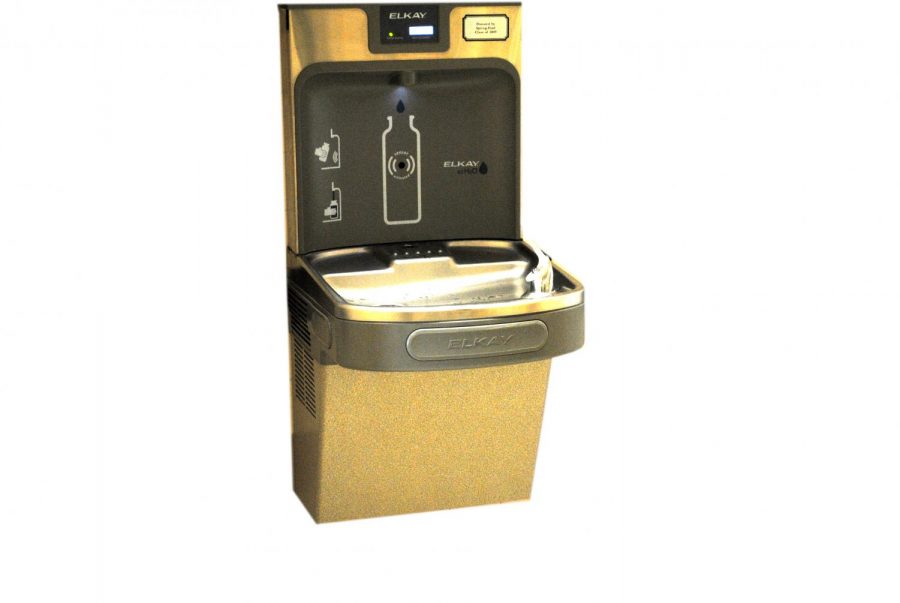Learning to recycle at Spring-Ford
The water-filling stations installed at Spring-Ford are good for the environment.
March 19, 2020
Reduce! Reuse! Recycle!
Those three words have been repeatedly said throughout our lives, and it’s time to put them into action.
In Spring-Ford, several measures are being carried out in order to support the idea of recycling and reusing to benefit not just the school, but the environment as a whole.
This past year, Spring-Ford made the first step towards promoting recycling and using less plastic by installing water-bottle filling stations. These stations are dispersed throughout the school and are used by students throughout the day.
Spring-Ford spent their funds on the new instalments to encourage students to utilize these stations to reduce the amount of plastic that is wasted with regular plastic water bottles.
The addition of these bottle filling stations has benefited the environment and the school community as a whole due to less plastic being used on a daily basis.
The amount of students bringing in their own water bottles has increased now that they have the ability to efficiently fill up their bottle at the bottle-filling station.
You can find these water-bottle filling stations throughout the school. There is a station placed in the cafeteria, in the senior wing of the school and in the 10th grade hallways.
Not only has Spring-Ford added the water bottle filling stations in order to support this movement, but recycling bins are placed in each classroom in order to encourage everyone to recycle.
Having recycling bins is a big step when learning to recycle. The amount of papers given to students on a daily basis can be overwhelming. That’s why having the ability to recycle the papers is beneficial. If we weren’t able to recycle the papers given to us in school, just imagine the stacks of papers sitting in the landfills.
The article “How Philly can recycle better and save money while doing it,” written by David Masur and Alex Danovitch in the Philadelphia Inquirer, mentions how plastic bags are “the worst offenders when it comes to contaminating our recycling stream.” Therefore, having the ability to recycle throughout the day and anywhere within the school will be extremely beneficial to the environment.
Even the school cafeteria takes steps to reduce contamination and promote recycling. In Spring-Ford’s cafeteria, lunch trays are plastic and reusable, rather than a styrofoam that gets thrown away at the end of each day.
Reusable lunch trays is one of the first of many steps the community can make to help the recycling issue and eliminate styrofoam as a whole.
Even though reusable lunch trays seems like a small step, just imagine how much trash would be accumulated if the district used styrofoam trays for every student who bought lunch. At first it may not seem like a lot, but I will assure you, the trash adds up, especially if the trash is not recycled.
It is evident the school district is taking similar steps to promote recycling, not just throughout school but through student’s and teacher’s everyday lives.
Some people see recycling as a chore, but I see recycling as an opportunity to better our school community and environment as a whole.

